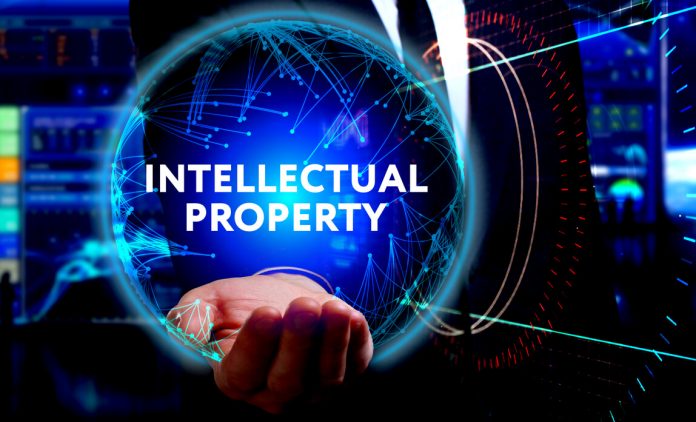This article is written by Girija Ambaskar, a 3rd-year student at MKES COLLEGE OF LAW, Mumbai and is also enrolled in Diploma in Media and Entertainment course by Lawsikho. This article has been edited by Ojuswi (Associate, Lawsikho).
This article has been published by Sneha Mahawar.
Table of Contents
Introduction
Who is a celebrity? What are the essential ingredients needed to make a case concerning Celebrity Rights?
A Single Judge Bench (Manmohan Singh, J.) of the High Court of Delhi answered these questions in the case of Titan Industries Ltd. v. Ramkumar Jewellers [2012 (50) PTC 486 (Del)],]. It observed that “…a celebrity is defined as a famous or a well-known person. A “celebrity” is merely a person who ‘many’ people talk about or know about.” Therefore, the basic ingredients of it are ‘validity’ and ‘identifiability’ which need to be established to make a case for infringement of Celebrity Rights.
A celebrity is a famous person. In today’s world, any author, actor, model, athlete, musician, politician, or anyone who captures the public eye is a celebrity. They are determined as celebrities by the audience or public, as perceived and viewed by the public. They have a huge following and they influence a lot of people through their profession and in other ways as well.
Celebrity Rights are not contained or mentioned in any separate law and hence are not statutory rights per se. They are entitled to different rights as individuals and as famous personalities. Application and jurisdiction over these rights are enforced by existing laws which contain a bundle of rights. Passing-Off is a term for someone intentionally or unintentionally representing somebody else’s trademark or brand, by offering goods or services to the public. Rights available to them include- Personality Rights, Privacy Rights, Reproduction and Distribution Rights, Character Rights, Rental Rights, Performance Rights, Lending Rights and so on. A celebrity’s interest can be protected under the umbrella of Trademark Law and Copyright Law. The Right to Publicity can be found in statutes like– The Trademarks Act 1999, The Copyright Act 1957, and the Right to Privacy has become a fundamental right in India.
This article will be focusing on Trademark and Copyright Laws, along with Personality Rights, the Right to Publicity and the Right to Privacy for celebrities.
Trademark laws
The definition of mark includes names, initials, signatures, sounds, etc. Trademark Laws in India protect film titles as well as characters and names. All these aspects belonging to an individual signify a source can thus be protected as Trademarks, and commercial exploitation can be regulated. Sometimes celebrities, either by themselves or collaborating with a brand, come up with their own “lines” or brands. That brand might contain its name, the name the celebrities assign to it, or an artistic logo. For example, Sachin Tendulkar registered his name as a Trademark in India and Usain Bolt has also trademarked his “pose”.
In the case of Sourav Ganguly vs Tata Tea Limited, Sourav Ganguly, the famous Indian Cricketer, after scoring hundreds in Lords, was troubled to learn after returning that Tata Tea Ltd had included postcards in their tea packets for an opportunity to congratulate him via those postcards, obviously without the approval or consent from Sourav Ganguly. The tea gained popularity. The court ruled in Sourav Ganguly’s favour as his reputation and popularity were a part of his Intellectual Property.
Copyright laws
Copyright means only the original creators of any literary, dramatic, or artistic work would be the original owners and are exclusively authorised to use it and gain profit obtained from their work, celebrities can demand to ask for compensation if a photographer makes use of their image or sells it to any third party. The Indian Copyright Act doesn’t contain any definition or concept of “Celebrity”. However, the definition of a “Performer” is given in Section 2 (qq)(2) in the Indian Copyright Act. These performers who could be considered celebrities have some rights associated with them. Copyright Law also protects any celebrity author’s books even if it isn’t original.
In the case of Sonu Nigam v Amrik Singh (alias Mika Singh) & Anr.[372/2013(Bombay High Court)] both popular singers of this era were obliged to attend a radio event and were clicked for posters with their permission. Though, Mika Singh used posters that weren’t official, to promote himself. The posters contained bigger images of him amongst other stars, including Sonu Nigam. Pictures of Sonu Nigam were diminished in size. The Bombay High Court restrained the defendants from using those posters/posters and ordered them to pay Rs. 10 Lakhs for damages for charities as approved by the parties. It was argued and ultimately concluded that the hoardings and posters gave the audience/public an unjustified perception of Mika Singh’s popularity in comparison to other dignified and deserving artists.
Personality rights
Personality includes one’s signature, image, likeness, voice, and other traits of one’s own identity. Personality Rights are the main component of any celebrity, as one has to be a celebrity to have these rights, and that is why Personality rights are sometimes also called Celebrity Rights. These rights mostly apply to celebrities or well-known public figures so that their identity cannot be misused or misappropriated. Publicity Rights, which is an aspect of Personality Rights, are image rights. It lays forth the commercial value of a photograph or any representation of that person whose fame and reputation might be misused by another. This right stems from the Right to Privacy and vest only in individuals who are famous, in other words, who are celebrities, who are capable of being commercially exploited by the use of their goodwill and reputation. Any kind of unauthorised commercial exploitation of celebrities shall be in violation of their personality right, as the fame and reputation they have gained are with their own hard work.
Right to publicity
The right to publicity is the right to control the commercial use of the celebrity’s identity. The right of publicity has evolved from the right of privacy and can be inherent only in an individual or an individual’s personality like his signature, voice, personality trait, etc. Publicity Right is purported towards providing an economic incentive for an individual’s right to control the commercial exploitation of his/her identity.
Aspects of an individual’s persona protected under Publicity Rights:
The Right to Privacy as recognized by the Constitution, allows individuals to give their consent for use of any of their information relating to the individual and their life details, which is not on public record.
Data and details of a person available on public records are ensured to be limited with no false content. The Trademarks Act, 1999 protects one’s name, image, likeness, and exclusive characteristics. Section 14 of the Act prohibits the use of personal names.
The Copyright Act, of 1957, protects one’s literary, artistic, photographic, musical works, and dramatic works. If a claim is brought, which proves that along with the infringement of copyright, it also violates publicity and personality rights, then protection is given for such categories as well.
In the case of Mr Shivaji Rao Gaikwad vs M/S Varsha Productions on 3rd February 2015, the Madras High Court passed an injunction order against the release of a film titled “Main Hoon Rajinikanth”, stating that, it violated the famous actor Rajnikant’s reputation through wrongful use of his name in the title and the movie. Thus, the court held publicity rights by passing this order.
Right to privacy versus IP rights of celebrities
The media considers that it is their fundamental right to capture and publish all the information about celebrities about matters that could be “public interest” or “public concern” which arises out of “Freedom of Press” under Article 19 of the Constitution. This has been challenged by celebrities for interfering with their personal lives and their right to privacy. Every individual has a right to exercise control over his/her own life and image as how it is portrayed to the world. The right to control the commercial use of his/her own identity should vest exclusively with them unless with his/her consent.
Only newsworthy information which would interest the public, and information or pictures captured in a public area that proves that the actor has consented to it, cannot be a violation of their privacy right.
In a very recent case, Krishna Kishore Singh vs Sarla a Saraogi, Krishna Kishore Singh being the father of Sushant Singh Rajput, the late actor, filed a suit for the protection of his rights of privacy and reputation of his son, in the High Court of Delhi. Krishna Kishore Singh made a statement before the court that any book, movie or series should not be made on his son’s life without his consent. The court dismissed the suit, after reviewing similar relevant cases and precedents, that celebrity rights cannot be granted or recognised without relevance to the actual concept of The Right to Privacy.
Conclusion
If a celebrity’s right to privacy, right to publicity and personality rights are not protected, their creations, names and likeness would be taken away and misused against them.
Celebrities should make sure that their rights are safeguarded in the following manner:
- Applying for Trademark registrations for names, signatures, brands, nicknames, and brands.
- Obtaining Copyright registrations for performances, literary works, images, videos, sound recordings, etc. to prevent unauthorised use and have control over its distribution, publication, public performance, etc.
These secure them from any financial benefits that infringers might gain from using such property. It might be time for our lawmakers to implement specific laws regarding celebrity rights that will introduce, illustrate and provide protection from misuse of a celebrity’s rights and simultaneously provide privacy to them.
References
- https://copyright.gov.in/documents/copyrightrules1957.pdf
- https://www.mondaq.com/india/trademark/777368/celebrity-rights-is-it-important-in-india
- https://www.algindia.com/an-overview-of-celebrity-rights-%20%20%20athletes-and-sportspersons/#:~:text=Celebrity%20Rights%20are%20a%20bundle,referred%20to%20as%20Celebrity%20Rights
- https://www.lexology.com/library/detail.aspx?g=c2428891-d91a-4fbc-b5a4-a6e0cb9e3913
- https://indiankanoon.org/doc/152020280/
- https://indiankanoon.org/doc/26058025/
- https://spicyip.com/2014/05/bollywood-music-awards-and-personality-rights-sonu-nigam-v-mika-singh-and-ors.html
- https://indiankanoon.org/doc/181125261/?type=print
Students of Lawsikho courses regularly produce writing assignments and work on practical exercises as a part of their coursework and develop themselves in real-life practical skills.
LawSikho has created a telegram group for exchanging legal knowledge, referrals, and various opportunities. You can click on this link and join:
Follow us on Instagram and subscribe to our YouTube channel for more amazing legal content.
 Serato DJ Crack 2025Serato DJ PRO Crack
Serato DJ Crack 2025Serato DJ PRO Crack












 Allow notifications
Allow notifications


